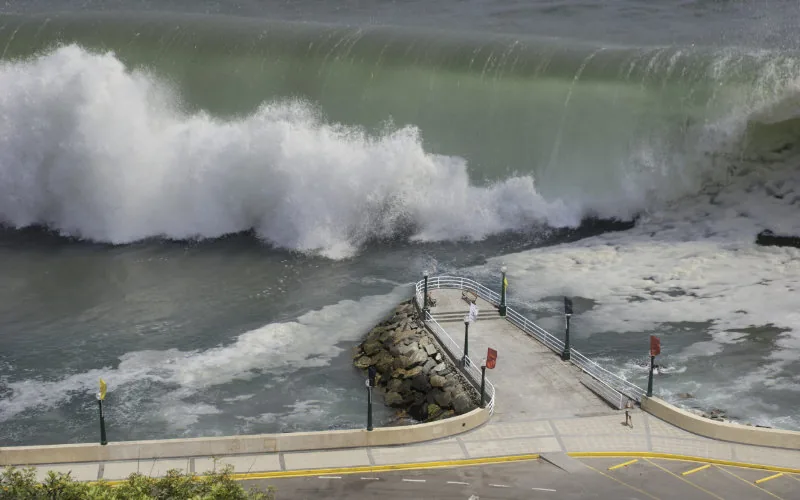El Jadida, Morocco Installs Tsunami Warning System to Boost Coastal Safety

After several months of blockage, the Chouaïb Doukkali University of El Jadida announced the resumption of the "CoastWAVE" project aimed at making the city "safe from tsunami risks".
The University has planned "the installation of alert devices and the placement of orientation signs in the city, after thorough studies, to allow the population to easily access secure evacuation zones in case of emergency," the institution states in a press release, specifying that "this project aims to strengthen the capacity of coastal cities in the Mediterranean region to face coastal risks. It constitutes a central element in the framework of the national strategy for managing these risks, which Morocco is developing across all its coastal regions."
The scientific team of Chouaïb Doukkali University had already "proceeded with the installation of a tide gauge, in addition to conducting a successful evacuation exercise at the port of Jorf Lasfar, thus strengthening coordination between actors involved in risk management," adds the note. El Jadida is the only Moroccan city benefiting from this scientific project carried out in partnership with the National Center for Scientific and Technical Research (CNRST), UNESCO, and a scientific team from Chouaïb Doukkali University, recalls Hespress, emphasizing that the implementation of this project has been delayed in El Jadida, which has not allowed it to obtain the "tsunami-safe city" certificate, unlike the Egyptian city of Alexandria last year.
"In the coming days, orientation signs related to rescue routes in case of a tsunami will be reinstalled, in addition to the installation of two alert sirens that were received last year as a donation from UNESCO," indicates a source. The delay of this project in the Moroccan city was due to the "retention" of these two sirens at Mohammed V International Airport in Nouaceur, following a request for fees of over 4 million dirhams by the company responsible for transporting the equipment from Germany. At the end of last year, UNESCO had sent a letter to the project managers to inquire about the reasons for this delay, it is specified.
Related Articles
-

Casablanca Beach Town Bans Jet Skis After Tragic Accident Injures 4-Year-Old
23 July 2025
-

UK Accused of ’Justice Outsourcing’ in Securitas Heist Case: MMA Fighter’s Conviction Sparks Controversy
23 July 2025
-

Morocco’s Ambitious 105km Guercif-Nador Motorway: Reshaping the Oriental Region’s Future
22 July 2025
-

Gold Price Drop Sparks Wedding Season Boom for Moroccan Jewelers
22 July 2025
-

Taxi Fare Scandal: Tangier Consumers Fight Back Against Illegal Price Hikes
22 July 2025